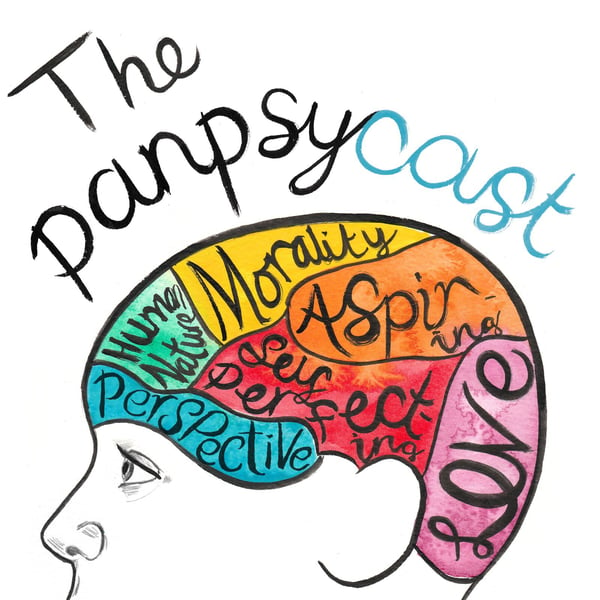Episode 141, ‘Deadly Sins’ with Elizabeth Oldfield (Part II - Further Analysis and Discussion)
The Panpsycast Philosophy Podcast
Jack Symes | Andrew Horton, Oliver Marley, and Rose de Castellane
4.8 • 604 Ratings
🗓️ 6 April 2025
⏱️ 39 minutes
🧾️ Download transcript
Summary
Much of ethics is relational: it’s about how we treat other people, the world around us, and how those relationships shape who we become. In philosophy, this often gets formalised as a set of virtues to cultivate, duties to obey, or harms to avoid. But today, we rarely talk about sins – let alone the seven deadly sins.
Historically rooted in the Christian tradition – pride, greed, lust, envy, gluttony, wrath, and sloth – have been understood not just as personal failings. They were taken seriously because they obscured what it meant to flourish: that is, to be fully alive. They are, fundamentally, habits of being that corrode our ability to love. So, what might we learn today from the seven deadly sins? How can these ancient categories illuminate our lives, in a world marked by disconnection and distraction?
In this episode, we’ll be speaking about the seven sins with Elizabeth Oldfield. Elizabeth is a writer, speaker, host of The Sacred podcast, and the former director of Theos Think Tank. In her recent book Fully Alive, she revives the seven deadly sins – not as a tool for moral condemnation, but as a lens through which to examine our practices and principles.
We’ll be talking with Elizabeth about how sin, properly understood, can help us confront the crisis of meaning and the collapse of community. We’ll also explore her Christian vision of moral transformation and why it’s vital to believers and non-believers alike.
Links
Elizabeth Oldfield, Fully Alive: Tending to the Soul in Turbulent Times
Sarah Stein Lubrano, Don't Talk About Politics: How to Change 21st-Century Minds
Transcript
Click on a timestamp to play from that location
| 0:00.0 | Pan Psygast |
| 0:04.0 | Part two further analyses and discussion. In our previous installment, we were discussing |
| 0:26.6 | the seven deadly sins with Elizabeth Oldfield, author of The Fantastic Fully Alive. We're |
| 0:32.8 | continuing that conversation in this section, and one of the things that comes out in the book is that |
| 0:40.6 | I suppose a lot of the ideas can be brought into a secular framework. But there is that |
| 0:46.1 | undertone of spirituality that certainly comes out at the end. And in the beginning, though, |
| 0:51.0 | you do say, I'm quoting the book here, today's plural societies have gifted us many things, |
| 0:58.2 | but reliable sources of communal meaning isn't one of them. |
| 1:02.3 | I wonder if you could expand on that a little. |
| 1:04.5 | In what sense does our society not offer us reliable communal meaning? |
| 1:10.0 | And why do you think that is? Why is it failing to do so? |
| 1:13.2 | The underlying kind of anthropology of the book, which I think is straightforwardly Christian, |
| 1:19.8 | but not uniquely Christian, is that we are not individuals. We are persons in relationship, |
| 1:27.2 | is the kind of John Zazulus, |
| 1:29.2 | orthodox, we're of looking at things, being is communion. You know, you could talk about |
| 1:34.7 | a Trinitarian anthropology, which is just a kind of fancy way of saying, Christians believe that |
| 1:39.4 | we are made in the image of God who was and is relational before anything else existed. |
| 1:44.5 | And the funny thing is that that's a kind of deeply theological statement and I think is being |
| 1:49.0 | evidence in a bunch of other disciplines, right? Whether you look at interpersonal neurobiology, |
| 1:54.0 | whether you look at the kind of peer effects in sociology, like we are not actually individuals, |
| 1:58.7 | we are not actually rational actors, which we know in theory, but so many systems are still designed for that. |
| 2:05.0 | We are people in relationship. |
... |
Please login to see the full transcript.
Disclaimer: The podcast and artwork embedded on this page are from Jack Symes | Andrew Horton, Oliver Marley, and Rose de Castellane, and are the property of its owner and not affiliated with or endorsed by Tapesearch.
Generated transcripts are the property of Jack Symes | Andrew Horton, Oliver Marley, and Rose de Castellane and are distributed freely under the Fair Use doctrine. Transcripts generated by Tapesearch are not guaranteed to be accurate.
Copyright © Tapesearch 2025.

